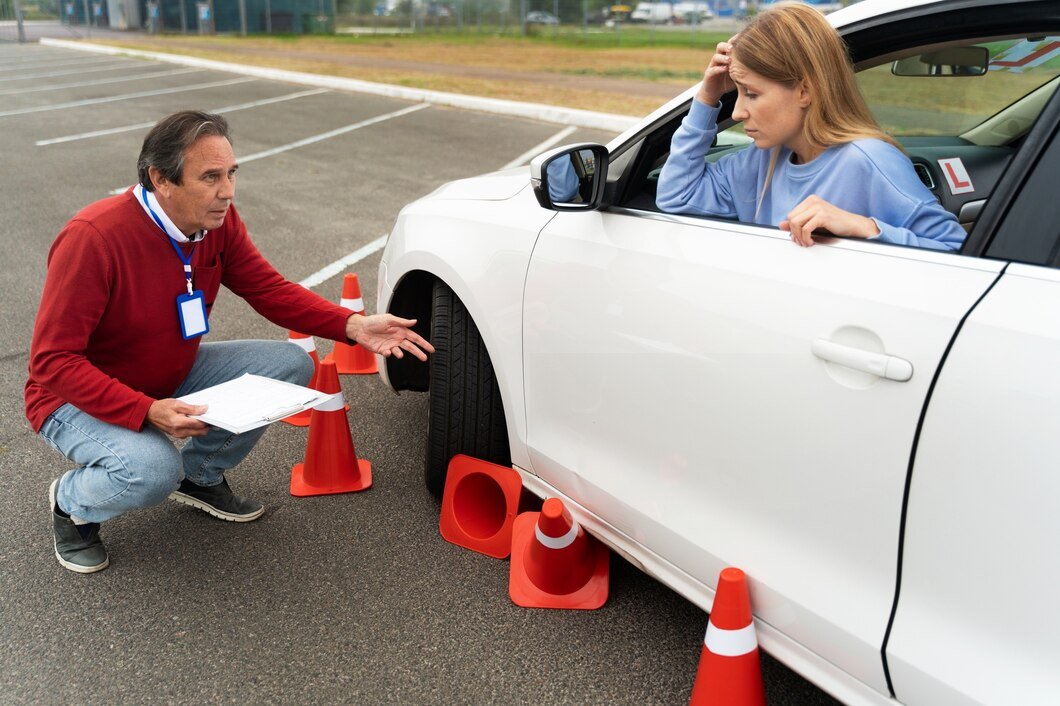
Car accidents can be overwhelming and traumatic experiences. In the aftermath, gathering evidence for your car accident claim is crucial for protecting your rights and securing the compensation you deserve. This comprehensive guide will walk you through the essential steps to gather evidence effectively, ensuring your claim is strong and compelling. Additionally, we’ll highlight the benefits of hiring a car accident lawyer to assist you throughout this process.
The Importance of Gathering Evidence Car Accident Claim
When filing a car accident claim, the burden of proof lies with the claimant. This means you need to provide sufficient evidence to demonstrate that the other party was at fault and that you suffered damages as a result. Properly gathered evidence can help establish liability, substantiate your injuries, and strengthen your negotiating position with insurance companies or in court.
Immediate Steps to Take at the Accident Scene
The moments immediately following a car accident are critical for gathering evidence. If you’re physically able and it is safe to do so, follow these steps:
1. Ensure Safety and Call for Help
- Move to Safety: If possible, move your vehicle out of the way of traffic to prevent further accidents.
- Check for Injuries: Ensure that you and any passengers are safe. Call emergency services if there are any injuries.
- Report the Accident: Call the police to report the accident, even if it seems minor. An official police report will be invaluable for your claim.
2. Document the Scene
- Take Photographs: Use your smartphone or a camera to take comprehensive photos of the accident scene. Capture multiple angles of the vehicles, the surrounding area, road conditions, and any visible injuries.
- Video Footage: If possible, record a video of the scene, narrating the events and pointing out relevant details. This can provide a more comprehensive view of the incident.
3. Gather Contact Information
- Other Drivers: Exchange contact and insurance information with all other drivers involved in the accident.
- Witnesses: Collect names, phone numbers, and addresses of any witnesses. Their testimonies can be crucial in corroborating your version of events.
4. Create a Written Record
- Notes: Write down your recollection of the accident as soon as possible. Include details such as the time, date, weather conditions, and any statements made by the other driver or witnesses.
- Police Report: Obtain a copy of the police report. This official document will include important information and an objective account of the accident.
Medical Evidence
Even if you feel fine after the accident, it’s essential to seek medical attention. Some injuries may not manifest immediately but can have serious long-term effects. Medical evidence is crucial for substantiating your injury claims.
1. Visit a Doctor
- Initial Examination: Visit a doctor or go to the emergency room immediately after the accident. A medical professional will assess your condition and document any injuries.
- Follow-Up Appointments: Continue with any recommended follow-up appointments or treatments. Consistent medical records demonstrate the extent and ongoing nature of your injuries.
2. Obtain Medical Records
- Doctor’s Notes: Ensure that your doctor’s notes detail the injuries sustained, the treatment provided, and any prescribed medications or therapies.
- Medical Bills: Keep copies of all medical bills and receipts for treatments, medications, and any other related expenses Car Accident Claim.
3. Pain Journal
- Personal Record: Maintain a daily journal documenting your pain levels, physical limitations, and emotional distress. This personal record can provide additional evidence of how the accident has impacted your life.
Vehicle Damage Evidence
Documenting the damage to your vehicle is essential for your property damage claim. This evidence can support your request for repairs or a replacement vehicle.
1. Photographs
- Detailed Images: Take clear, detailed photos of the damage to your vehicle from multiple angles. Include close-ups and wide shots that show the extent of the damage.
2. Repair Estimates
- Professional Assessment: Obtain repair estimates from reputable auto repair shops. Multiple estimates can provide a more accurate picture of the repair costs.
- Receipts and Invoices: Keep all receipts and invoices related to vehicle repairs or replacements.
3. Vehicle Valuation
- Market Value: Research the market value of your vehicle before the accident. This information can help establish a baseline for your property damage claim Car Accident Claim.
Evidence from Authorities and Experts
Official documents and expert testimonies can significantly bolster your car accident claim.
1. Police Reports
- Accident Report: The police report is an official record that includes details of the accident, statements from involved parties, and the officer’s observations. This document is often highly regarded by insurance companies and courts.
2. Accident Reconstruction Experts
- Expert Analysis: In complex cases, an accident reconstruction expert can provide a detailed analysis of how the accident occurred. Their testimony can clarify points of contention and establish fault.
3. Surveillance Footage
- Cameras: Check for any surveillance cameras in the vicinity of the accident. Traffic cameras, security cameras from nearby businesses, or dashcams from other vehicles can provide valuable footage of the incident Car Accident Claim.
The Role of a Car Accident Lawyer
Navigating the legal and procedural complexities of a car accident claim can be daunting, especially when you’re recovering from injuries. This is where the expertise of a car accident lawyer becomes invaluable. The role of a car accident lawyer is multifaceted and crucial in navigating the complex legal landscape following a car accident. Car accident lawyers in Los Angeles specialize in handling cases related to motor vehicle collisions and are equipped with the knowledge, experience, and resources to advocate for their clients’ rights and interests. Here’s a detailed look at the role of a car accident lawyer:
Benefits of Hiring a Car Accident Lawyer
- Expert Guidance: A car accident lawyer can provide expert guidance on the legal process, ensuring you meet all deadlines and comply with legal requirements.
- Evidence Collection: Lawyers have experience in gathering and organizing evidence effectively. They can identify and obtain crucial documents, witness statements, and expert testimonies that you might overlook.
- Negotiation Skills: Insurance companies often aim to minimize payouts. A lawyer can negotiate with insurers on your behalf, leveraging their knowledge and experience to secure a fair settlement.
- Legal Representation: If your case goes to court, a lawyer will represent you, presenting a compelling case backed by solid evidence. This can significantly increase your chances of a favorable outcome.
Steps to Take After Leaving the Accident Scene
Once you’ve left the accident scene, continue to gather and preserve evidence to support your claim.
1. Notify Your Insurance Company
- Timely Report: Inform your insurance company about the accident as soon as possible. Provide them with all relevant details and documentation Car Accident Claim.
2. Maintain Records
- Documentation: Keep all records related to the accident, including correspondence with insurance companies, medical bills, repair estimates, and receipts. Organize these documents for easy reference.
3. Stay Off Social Media
- Privacy: Avoid posting about the accident or your injuries on social media. Insurance adjusters may monitor your accounts, and any statements or photos could be used against you.
Additional Tips for Strengthening Your Claim
1. Avoid Giving Recorded Statements
- Legal Advice: Consult with your lawyer before providing any recorded statements to insurance adjusters. They can guide you on how to respond without jeopardizing your claim.
2. Be Honest and Consistent
- Accuracy: Be honest and consistent in all your communications and documentation. Any discrepancies can undermine your credibility and weaken your claim.
3. Follow Medical Advice
- Compliance: Adhere to your doctor’s recommendations and treatment plans. Failing to do so can give the impression that your injuries are not as severe as claimed Car Accident Claim.
Conclusion
Gathering evidence after a car accident is a critical step in securing the compensation you deserve. From documenting the accident scene and obtaining medical records to collecting repair estimates and leveraging expert testimonies, each piece of evidence plays a crucial role in building a strong case. While this process can be overwhelming, especially during recovery, the assistance of a skilled car accident lawyer can make a significant difference.
A car accident lawyer can guide you through the complexities of the legal system, help gather and organize evidence, negotiate with insurance companies, and represent you in court if necessary. Their expertise and experience can enhance your chances of a favorable outcome, allowing you to focus on your recovery.
Read More: Understanding the role of economic damages consultants in litigation cases








